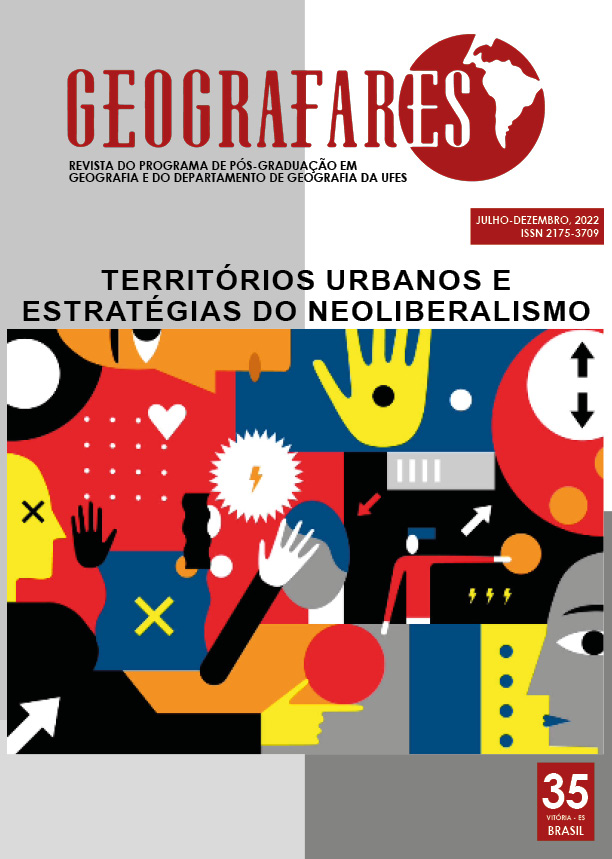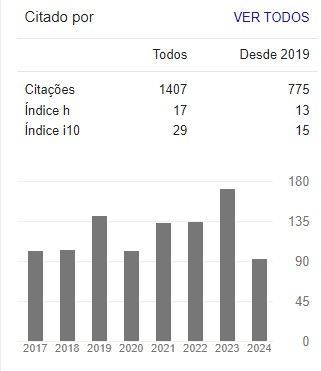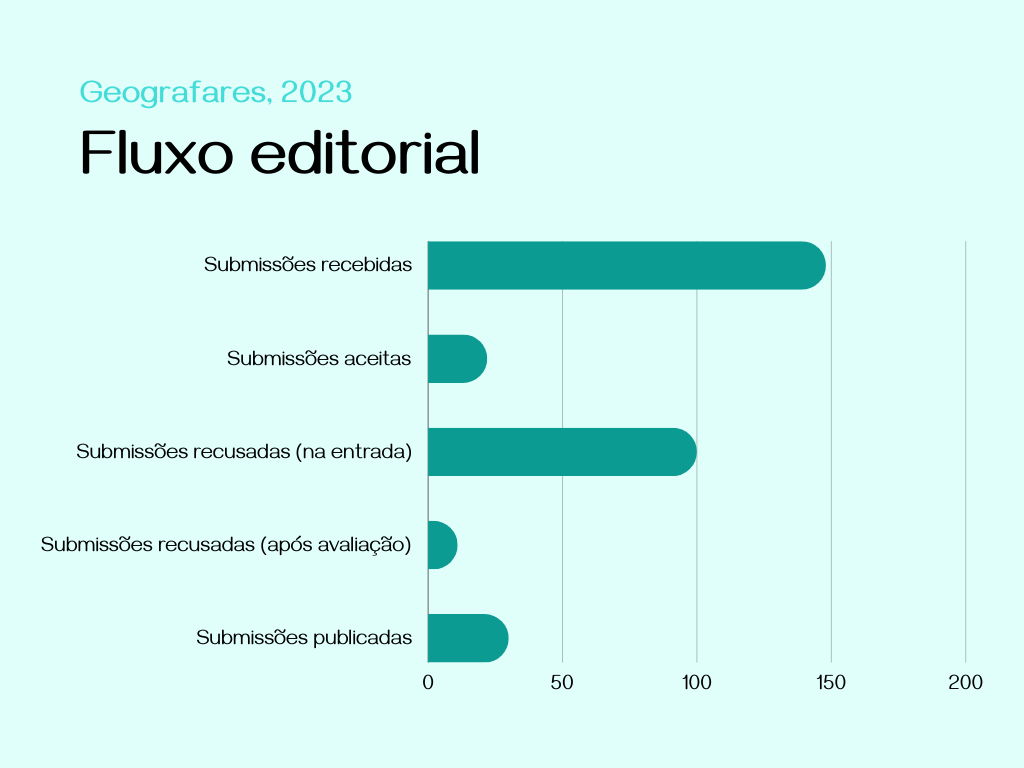Modes of exchange, metabolism and social formations: contributions from Kojin Karatani's framework to think about the spatial dimension
DOI:
https://doi.org/10.47456/geo.v2i35.38483Keywords:
metabolismo, modes of exchange, GeographyAbstract
Marxist philosopher and literary critic, Kojin Karatani is widely considered one of the most important Japanese theorists of our time. Some of his innovative perspectives began to be disseminated in Western academic debate as some of his works were translated into the English language. Within this framework, the arguments contained in his book The Structure of World History were highlighted, in which the author proposes re-readings of certain Marxian categories placed in perspective in an attempt to reinterpret universal history. His proposal to deal with modes of exchange and his recovery of the concept of metabolism to describe the relationship established between society and nature, for example, are among his contributions. In this sense, the present article intends to present in a summarized way some of the ideas contained in Karatani's scheme, seeking to point out how they could be mobilized to contribute to certain debates in Geography.
Downloads
References
BARBOUR, Charles. The structure of world history: From modes of production to modes of exchange. Contemp Polit Theory, n. 16, 2017, 290–292. Disponível em: https://doi.org/10.1057/cpt.2016.19. Acesso em: 02 jun. 2022.
CASTREE, Noel. Marxism and the Production of Nature. Capital & Class, v. 24, n. 3, p. 5-36, out. 2000. Disponível em: http://dx.doi.org/10.1177/030981680007200102. Acesso em: 31 mai. 2022.
FOSTER, John Bellamy. Marx's Theory of Metabolic Rift: classical foundations for environmental sociology. American Journal Of Sociology, v. 105, n. 2, p. 366-405, set. 1999. Disponível em: http://dx.doi.org/10.1086/210315. Acesso em: 31 mai. 2022.
FOSTER, John Bellamy; CLARK, Brett. Marx’s Universal Metabolism of Nature and the Frankfurt School: Dialectical Contradictions and Critical Syntheses. In: ORMROD, James S. (Org.) Changing Our Environment, Changing Ourselves. London: Palgrave MacMillan, 2016, 101–35.
HILLANI, Allan M.; TUPINAMBÁ, Gabriel.; CARON, J.-P.; MILLIE, J.; SILVEIRA, Maikel da; PEDROSO, Rafael; SALDANHA, Rafael.; NADERI, Reza; BARBE, Renzo; GUIDI, Tiago; SHULKIN, Yasha; YAO, Yuan. Atlas of Experimental Politics (reduced version). Ljubljana: ŠUM Journal, 2021. Disponível em: https://www.academia.edu/67951135/Atlas_of_Experimental_Politics_reduced_version_. Acesso em: 31 mai. 2022.
JAMESON, Fredric R. Ancient Society and the New Politics: from Kant to Modes of Production, Criticism: v. 58, n. 2, 2016 Disponível em: http://digitalcommons.wayne.edu/criticism/vol58/iss2/8. Acesso em: 31 mai. 2022.
KARATANI, Kojin. An Introduction to Modes of Exchange. Kojin Karatani (Officil Web Site), 2017. Disponível em: http://www.kojinkaratani.com/en/pdf/An_Introduction_to_Modes_of_Exchange.pdf. Acesso em: 31 mai. 2022.
KARATANI, Kojin. The structure of World history: from modes of production to modes of Exchange. Durham: Duke University Press, 2014.
KARATANI, Kojin; WAINWRIGHT, Joel. Critique is impossible without moves: Na Interview with Kōjin Karatani. Dialogues in Human Geography v. 2, n. 1, p. 30-52, 2012. Disponível em: https://journals.sagepub.com/doi/abs/10.1177/2043820612436923. Acesso em 31 mai. 2022.
RICHTER, Steffi. Review of Karatani, Kojin, The Structure of World History: From Modes of Production to Modes of Exchange. H-Asia, H-Net Reviews. April, 2015. Disponível em: http://www.h-net.org/reviews/showrev.php?id=42393. Acesso em: 31 mai. 2022.
SMITH, Neil. Uneven development: nature, capital, and the production of space. Athens (Georgia): The University of Georgia Press, 2008.
WAINWRIGHT, Joel. The Spatial Structure of World History. Journal of Japanese Philosophy n. 4, p. 33-59, 2016. Disponível em: https://www.pdcnet.org/collection/show?id=jjp_2016_0004_0033_0059&file_type=pdf. Acesso em 31 mai. 2022.
WARK, McKenzie. All Power to the {Historical} Imagination! Public Seminar, 4 jan. 2015. Disponível em: http://publicseminar.org/2015/01/karatani/. Acesso em: 31 mai. 2022
Downloads
Published
How to Cite
Issue
Section
License
Copyrights Declaration
Authors who publish in the journal agree with the following terms:
- Authors will keep their copyrights and grant the journal the right to their first publishing, simultaneously licenced under Creative Commons Attribution License which allows sharing their work with authorship recognition and initial release through this journal.
- Authors may sign additional contracts separately diffusing a non-exclusively version of the paper published in this journal (i.g. publishing in institutional repository or as a book chapter), once citing the authorship and initial release through this journal.
- Authors are encouraged to publicize and diffuse their paper online, for example onto institutional repositories or on their personal websites.



























